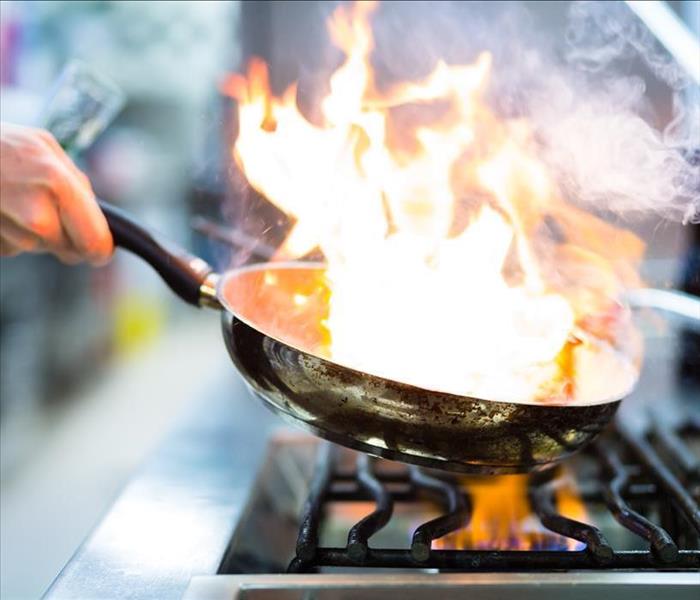Grease Fires: Fast and Dangerous
10/17/2021 (Permalink)
It’s no surprise that most home fires start in the kitchen. But did you know that most kitchen fires are grease fires? It’s true. Cooking with oil and fat adds an extra element of risk to home cooking. Fortunately, a few simple precautions can help you avoid grease fires in your kitchen.
How to Stop Grease Fires Before They Start
1) Keep cooking surfaces clean. Wipe grease off the stove and countertops and clean the oven regularly.
2) Pay attention to temperature directions in recipes and on packages. Fats and oils with low smoking points, like butter and sesame oil, should never be used with high heat. Others, like peanut oil and extra virgin olive oil, can tolerate much higher temperatures.
3) Never leave cooking food unattended. Fats and oils can ignite quickly. If you see smoke rising from the pan or detect a sharp, smoky smell, turn down the heat or remove the pan from the stove immediately.
What to Do If A Fire Breaks Out
1) DO NOT POUR WATER ON THE FLAMES. This will cause the grease to splatter, spreading out fire and making it more difficult to extinguish.
2) If possible, smother the fire using a metal lid or pan. Do not use glass, as it may shatter. Turn off the heat and leave the cover on until it is cool.
3) Alternatively, pour baking soda or salt on the fire to extinguish the flames. Do not use other cooking products like flour, sugar or cornstarch, as these may make things worse.
4) Point a Class B dry chemical fire extinguisher at the fire and spray until flames are gone.
Once the grease fire has been extinguished, assess the damage and begin fire cleanup. Contact the River Falls, WI fire department or the National Fire Protection Association for more information about keeping your home and family safe from fire.






 24/7 Emergency Service
24/7 Emergency Service
